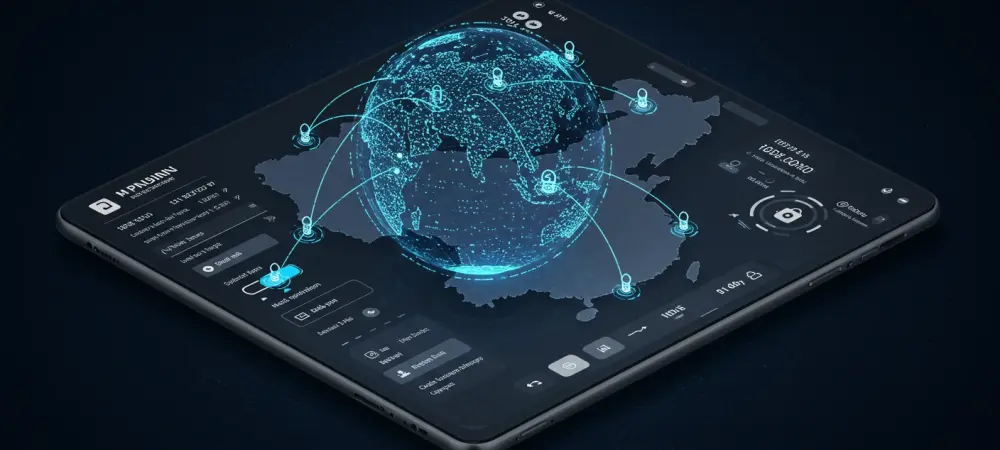In an increasingly interconnected world, smartphone users rely on VPNs (Virtual Private Networks) for privacy and security. However, recent concerns have arisen regarding the ownership of several VPNs by Chinese companies, which raises significant questions about data security and user privacy. This roundup examines various expert opinions and insights into how this ownership could potentially impact users globally.
The Interplay of Technology and Geopolitics in VPNs
Some industry leaders stress that the internet’s invisible borders make VPN ownership a geopolitical issue. Chinese investments in VPNs bring into question the true extent of data privacy for global users. Security professionals are particularly concerned about potential data sharing due to China’s national security laws, which might mandate companies to hand over data when required, therefore posing an inherent risk to user privacy beyond Chinese borders.
The Tech Transparency Project sheds light on this issue by revealing that a significant number of top VPNs on app stores are tied to Chinese entities. According to their findings, many of these apps do not transparently disclose their ownership, creating a covert network of potential security threats. These revelations compel technology corporations to bolster app-screening processes to protect data integrity.
Hidden VPN Ownership: Risks and Realities
Cybersecurity analysts highlight the intricate web of shell companies masking the true ownership of VPN services. This deceptive practice challenges both Apple and Google to ensure comprehensive app vetting procedures, preventing covert data operations that could compromise user security. Observers stress the importance of app transparency as a key component in securing digital ecosystems against geopolitical exploitation.
Concerns extend to American users, who may unknowingly channel their internet traffic through servers in China. Real-world cases have shown breaches in privacy where data was improperly accessed or shared, making the choice of VPN service crucial. The message from experts is clear: selecting trustworthy VPN providers is essential to avoid unintentional data vulnerabilities.
The Surge in VPN Usage and the Safety Spectrum
VPN adoption has skyrocketed, especially with free apps, as users seek cost-effective protection. However, cybersecurity experts caution against the potential dangers of these apps, often lacking robust security features. While attractive for their price, free VPNs can sometimes become gateways for data exploitation and lack the transparency provided by established brands.
Understanding national security laws helps clarify how VPN ownership impacts global security. Laws enforced in regions like China enable government access to corporate data, thus raising red flags for privacy advocates. With numerous VPNs potentially operating under these laws, distinguishing safe connections becomes a dilemma for users seeking secure browsing.
Solutions and Corporate Accountability in VPN Services
In the pursuit of secure browsing alternatives, some experts recommend investigating innovative security solutions beyond basic VPNs. This includes using services that prioritize robust encryption and transparent practices. As user trust becomes intertwined with corporate responsibility, tech companies are urged to offer services that guarantee privacy while complying with global security standards.
Looking ahead, regulatory bodies play a crucial role in shaping future digital security landscapes. Technological advancements necessitate evolving regulations that address the unique challenges introduced by cross-border ownership. Ensuring cooperation across international lines is crucial to establishing a universally secure digital space.
Key Takeaways: Making Informed VPN Decisions
Ultimately, smartphone users must arm themselves with knowledge to navigate VPN selection. Opting for trusted Western brands over questionable free alternatives is highly advised. These services offer enhanced data protection due to their adherence to stringent privacy regulations and transparent operational practices.
A proactive approach involves constant vigilance and assessment of online security strategies. Users are encouraged to research before installing any VPN and prioritize safety over convenience. By aligning with reliable brands, one can significantly mitigate privacy risks inherent in the digital age.
Reflecting on Digital Privacy and Security Challenges
As digital privacy challenges continue to evolve, vigilance in app selection remains pivotal for smartphone users worldwide. Chinese ownership of VPNs has underscored the sustained influence of geopolitical factors on tech security. Reflecting on these insights serves as a foundation for safer internet practices, bolstered by informed choices and proactive measures. Users, businesses, and policymakers must work together to craft a more secure internet landscape, ensuring data privacy now and in the years to come.

